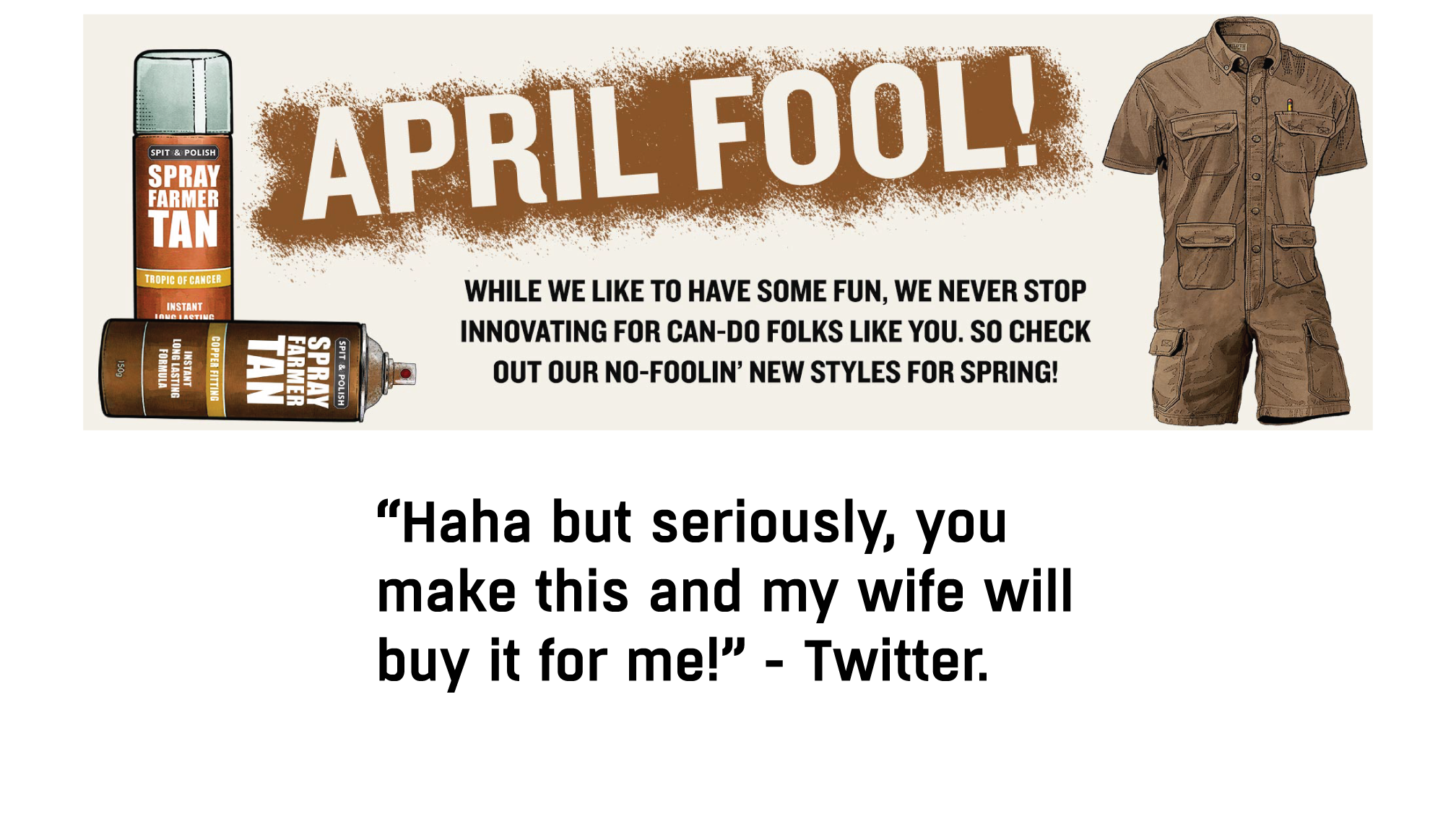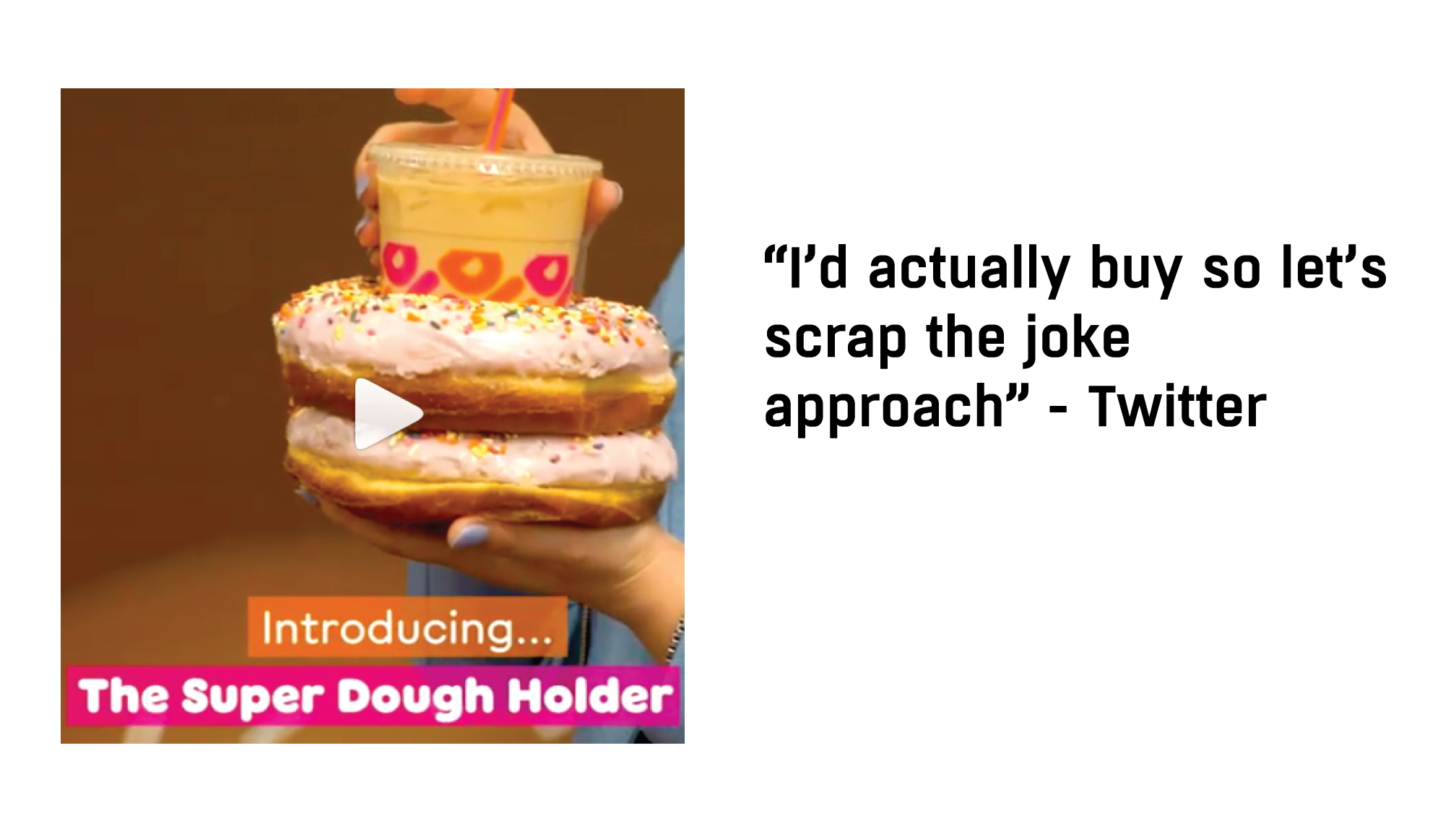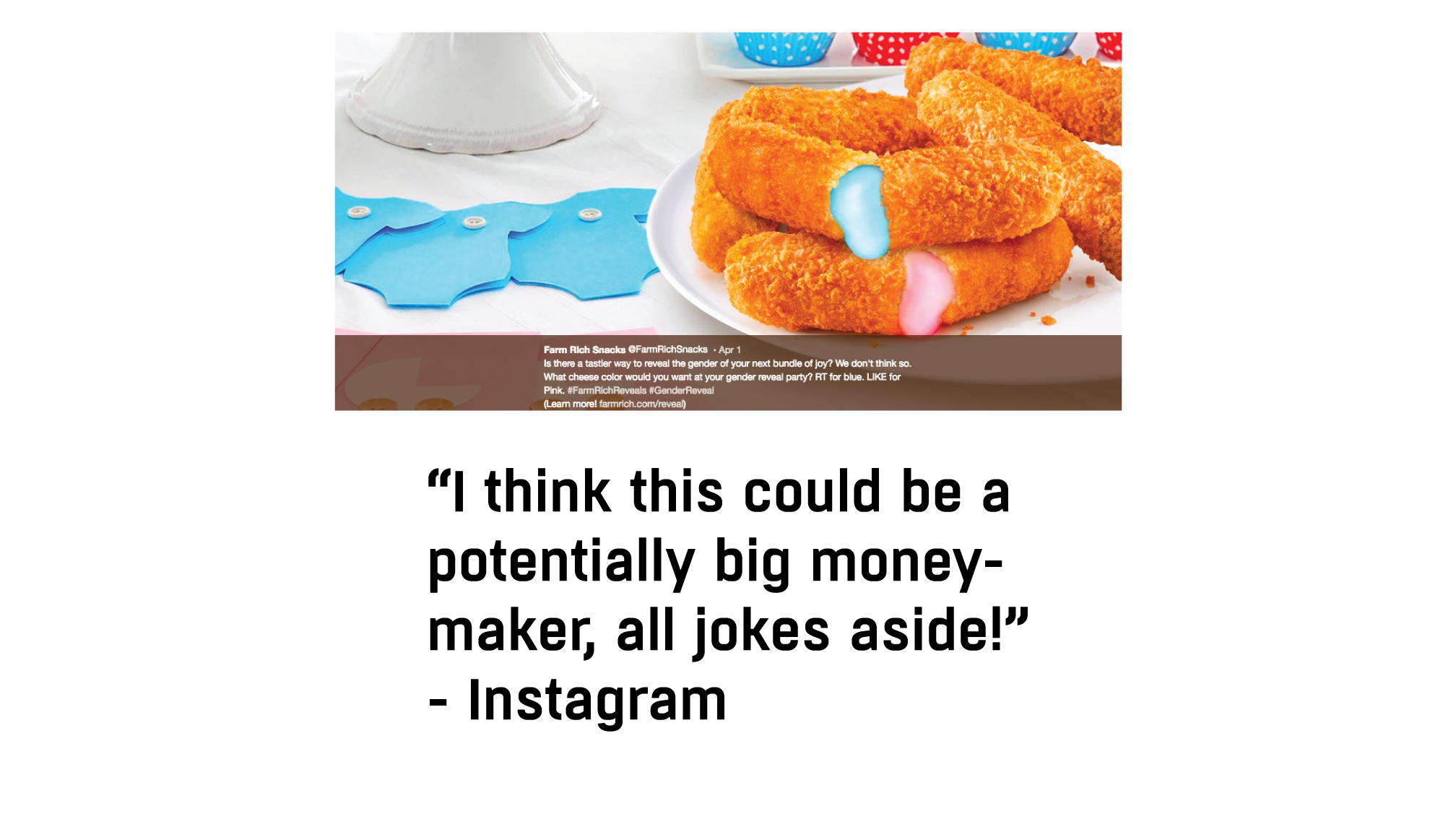April Fools’ Day is the perfect opportunity for BigCos to test-and-learn on consumers’ responses to new and, dare we say “wacky” ideas, and many BigCos took advantage of that this year via social media. When testing new ideas, it’s easy for consumers to passively SAY on a survey what they might do, stating that they have high purchase intent – but if a company can get a consumer to DO something, such as leave a comment asking for the product or actually click to buy a product, they can gather real-time data on the true desire for a product to be in the market. When a transaction occurs, it shows a consumer’s willingness to give something up (money, information, etc.) in order to gain access to a new product. Transactional learning can come to life in many forms, but social media ads or posts are a fast, low cost way to gather data from a large volume of consumers.
Though the products introduced were intended as jokes, the companies that posted them learned a few important things about their consumer base including overall interest and acceptance of new, out-of-the-ordinary products. And with high consumer engagement, perhaps brands might consider future product spoofs from a launchpad of test-and-learn. There is potential to gather a lot of valuable consumer insight from this low-risk approach.
We curated a few examples of strategies brands used that may have been leaning more towards transactional learning than simply a funny joke, as well as a few products that actually gained some traction with consumers.
Halo Top introduced the world’s first “edible ice cream face masks” to address real needs for new offerings for its loyal customers and, tongue-in-cheek, for brighter skin as a result of the exfoliating properties of chocolate chips and sprinkles. Halo Top built out product concepts and landing pages that included “Buy Now” widgets to track transactional learning. Once clicked, the widget took the shopper to another landing page that bellowed “April Fools” and included a contest entry for free ice cream.

Duluth Trading Co, known for its durable workwear, announced a new product – a workwear romper called “Duluthflex Fire Hose Romper – where can-do function meets one-piece dressing convenience.” Duluth has probably heard consumer pain points around the inconvenience of having to deal with multiple clothing items, so why not test the ‘launch’ of a romper that removes that pain? Comments like this indicate some level of stickiness of a Job to Be Done that stands behind the innovation.

Dunkin’ launched a Super Dough Coffee Cup Holder, edible and functional. The coffee and donut purveyor responded to consumer needs for both with its tongue-in-cheek coffee clutch comprised of two oversized donuts encircling the cup. With high engagement on social media, Dunkin’ garnered some data on consumer pain points. While some called out the messiness and high calories, others shared the appeal of a zero waste wrapper that is better for the environment. And consumers took the opportunity to offer suggestions to make this a vegan offering or to bring back past sweet treats such as cronuts.

Sensing that parents-to-be feel the need to offer ever-new ways to share the news of their unborn baby’s sex with friends and family, Farm Rich launched Gender Reveal Mozzarella Sticks. Then, they reached out to shoppers with a clickable coupon link to their regular offerings, “We love a good gender reveal party, but our Mozzarella Sticks are perfect just the way they are. Grab a coupon and save on real Mozzarella Sticks. No joke.” And, even though Farm Fresh responded to consumer comments with assurances that their regular mozzarella sticks are equally tasty, they learned that consumers may be open to some innovative new entrants into their lineup.

With over 3,000 comments on Facebook alone, McDonald’s Shake Sauce spoof engaged consumers and gave the fast food giant useful insight into real customer desires. While shoppers weighed in with requests for the return of szechuan sauce and also aired a few grievances, a crowd was waving its hands and saying, “yes, please” to the sweet and salty creation.

Posited as April Fools’ “jokes,” these faux product launches nonetheless resonated with consumer needs and desires, and sponsoring brands gained some valuable data from customers. We’re not suggesting that any of these brands move forward with their April Fools’ prank products as-is, but instead, that there could be some interesting learnings on new forms, attributes, and underlying consumer Jobs to Be Done because people took the time to comment in reaction to these fake “offers.”

